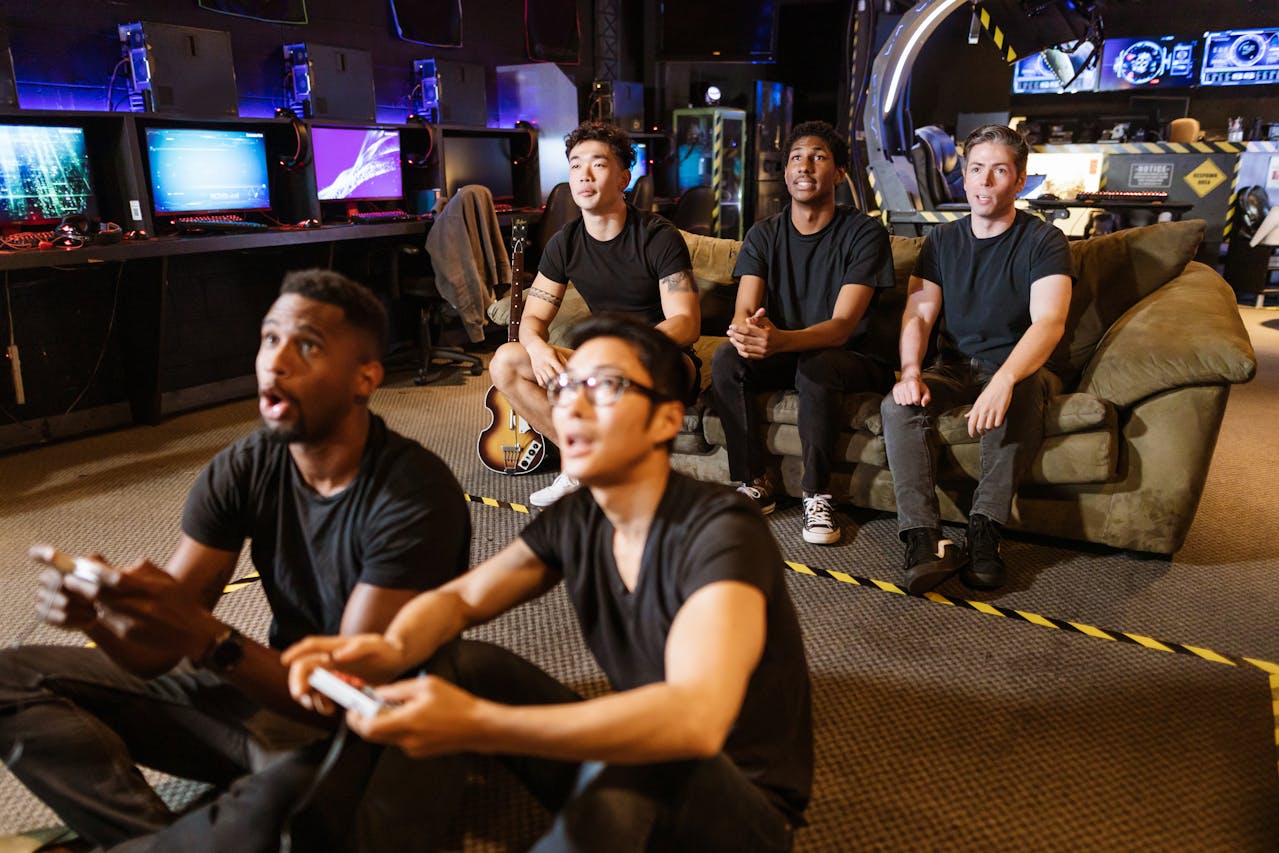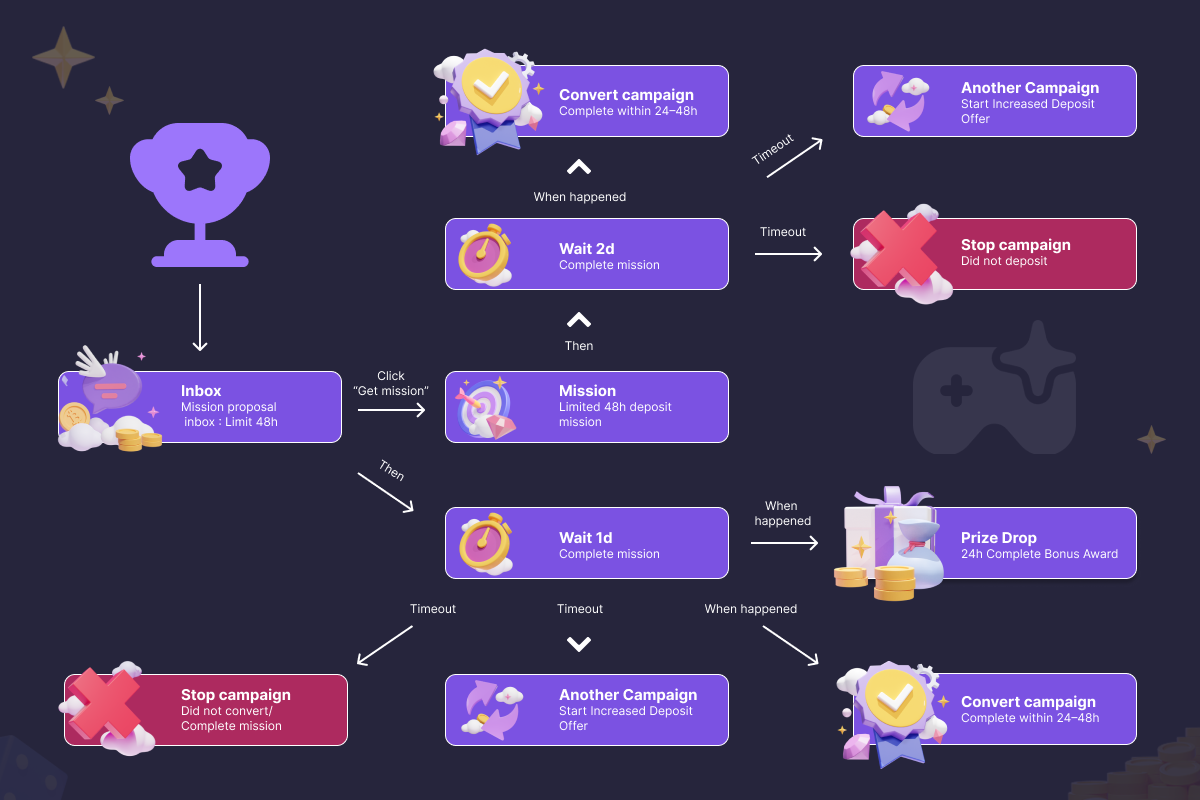Latest News
Revealed: The emotional, social, and developmental benefits of gaming

- 28% of internet users play games to meet new people
- A third of gamers say they play because they like to challenge themselves.
- There are 20,000 gaming jobs in the UK, providing plenty of opportunity for a career in the industry
- We spoke to three experts in the field who gave their insights into the gaming industry
There are lots of negative misconceptions about gaming, many of which are far from the truth. A new study turns stereotypes on their heads and reveals the emotional, social, and developmental benefits of gaming. Dr Rachel Kowert, Research Director of Take This – a mental health non-profit; Dr Matthew Barr, a lecturer of Game Studies at the University of Glasgow; and Noel McDermott, a psychotherapist and presenter of The Well-Being Show podcast, provide their thoughts and insights. Here are some of the highlights:
Gaming can boost mental wellbeing and help with feelings of loneliness
- Thanks to well-crafted storylines and lifelike graphics, games are the perfect form of escapism
- 34% of gamers identify the feeling of being immersed in a game as a key motivation to play
- The global gaming population is likely to have increased by 4% since the outbreak of Covid-19
Especially in challenging times, activities that provide a positive distraction and allow an individual to put their worries to the back of their mind can have a beneficial impact on mental wellbeing. Gaming is an excellent example of this, offering an immersive experience that can mentally transport you to another world.
Barr says, “Video games are good at getting players into the state of optimal experience that psychologists call ‘flow’, by offering an appropriate balance of challenge versus achievement. It’s that feeling of being ‘in the zone’, where you’re totally absorbed in the task at hand, and you’re operating at the top of your game. In turn, this has a positive impact on how players feel.”
This is because the sense of reward releases feel-good hormones called dopamine that boost the player’s mood. What’s more, gaming can offer meditative benefits by fully occupying your mind with the objectives of the game.
Kowert adds that, “Gameplay can also teach skills that have long been associated with increased happiness and prolonged life satisfaction, including openness to experience, self-care, a growth mindset, solution-focused thinking, mindfulness, persistence, self-discovery, and resilience.”
Gaming can maintain and build new relationships
- Half of gamers play with their real-life friends
- 28% of internet users play games to meet new people
- 1 in 3 internet users in the UK say the main reason they game is to have fun with people they know
Contrary to popular belief, gaming can be a sociable activity. Many games offer multiplayer modes or are designed to be played in teams, providing the opportunity for individuals to join forces with their existing friends or virtually meet new people – located anywhere in the world.
McDermott says, “Gaming, especially online, can provide immeasurable benefits to those who are lonely and isolated. It provides safe social contact and a place where skills can be developed. These skills can provide a much-needed boost to self-esteem.”
Research found that 60% of gamers report playing more games with social elements since the beginning of the pandemic, suggesting gaming can play a positive and pivotal role in connecting people at a time when face-to-face contact isn’t always possible.
Kowert explains, “Shared experiences, like playing games together, have been linked to increased self-esteem and a sense of belonging, as well as decreased feelings of depression, anxiety, and isolation.”
Gaming can teach life skills and cognitive abilities
- There are 20,000 gaming jobs in the UK, providing plenty of opportunity for a career in gaming
- Minecraft: Education Edition, for example, has applications in geography, history, engineering, and physics
- A third of gamers say they play because they like to challenge themselves.
While gaming can provide a fun form of entertainment, it can also contribute to the player’s cognitive development. For example, many titles involve problem solving, strategy and multi-tasking, among other skills.
Kowert explains, “Games are fantastic learning tools, particularly for children, because they are so engaging. Video games are also great vehicles for sharpening cognitive skills because they provide a range of different challenges within a single space. Gameplay has been associated with the improvement of a range of cognitive skills, including:
- improved creative thinking
- problem solving
- time management
- leadership skills
- goal setting
- initiative taking
- decision making
- persistence in the face of difficult challenges.”
It’s estimated that children aged 12-15 years old spend an average of 11.6 hours a week gaming. So, with gaming being such a widely enjoyed hobby, it’s encouraging to note that it could be effectively harnessed as an educational tool to teach numerous skills and knowledge. What’s more, with the gaming industry growing year-on-year (and estimated to be worth £3.86 billion in 2020), it could also open doors for careers in the industry.
Barr explains, “We all learn new skills through practice, whether that’s learning how to play an instrument or training to play sports more proficiently. Learning from a video game is no different – you’re exercising skills all the time, whether it’s figuring out puzzles or using your communication and language skills to talk to and strategize with your fellow players.”
Gaming myths debunked
- 52% of Brits play video games, demonstrating its popularity and prevalence in daily life
- Gaming is the nation’s second favourite pastime, after watching TV
- Brits spend an average of 7 hours a week gaming, which is just a third of the time spent watching TV (22.5 hrs)
Over the years, gaming has been associated with negative stereotypes and behaviours, such as laziness, violence, and isolation. There is little evidence to prove any of these correct. Instead, in many cases, gaming can be more beneficial for the player’s health, development, and social abilities than it is detrimental. In fact, with over half of Brits playing games, it’s apparent that gaming is just a part of modern life for many.
Kowert explains, “There is no evidence to suggest that playing games online has a negative impact on our ability to socialise. However, research has found that playing games with our friends online can strengthen our offline friendships and relationships.”
Another concern that often arises is the amount of time people spend gaming and whether gaming has addictive qualities. Talking on the topic, Barr explains that, “People talk about players becoming ‘addicted’ to games, without really considering what that word means, in a clinical sense. We don’t bat an eyelid when someone becomes so engrossed in a book that they sit there reading for hours on end, but somehow this sort of behaviour is perceived as problematic when it comes to games.”
-

 Asia6 days ago
Asia6 days agoTesla to showcase Model Y with NODWIN Gaming at the thrilling BGMS Season 4 Grand Finals
-

 Compliance Updates6 days ago
Compliance Updates6 days agoSOFTSWISS Compliance Expert Shares Knowledge on AML in iGaming for Sumsub Academy
-

 Africa6 days ago
Africa6 days agoRacing1 is exhibiting for the first time at the Grand Prix D’Afrique
-

 Latest News6 days ago
Latest News6 days agoÅland-Based Gaming Company Paf Becomes Main Partner of the Finnish Ski Association – One of the Most Significant Sponsorship Agreements in the Association’s History
-

 Latest News6 days ago
Latest News6 days agoAnimo Studios debuts virtual hosts for live table games starting with Stake
-

 Latest News6 days ago
Latest News6 days agoKaizen Gaming data – FC Barcelona the fan favourite to win the Champions League
-

 Latest News6 days ago
Latest News6 days agoWeek 37/2025 slot games releases
-

 Latest News6 days ago
Latest News6 days agoBehind the surge in XRP, DL Mining brings new opportunities to get 0.1BTC or 2ETH with your XRP




















